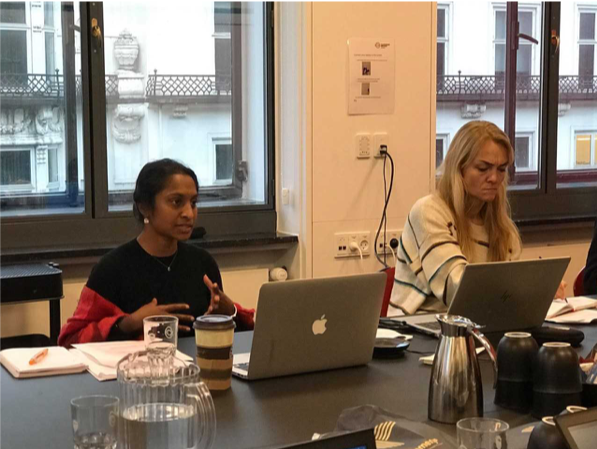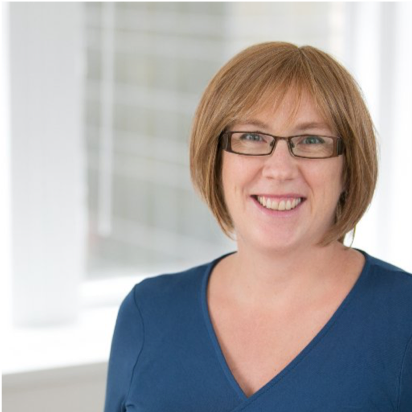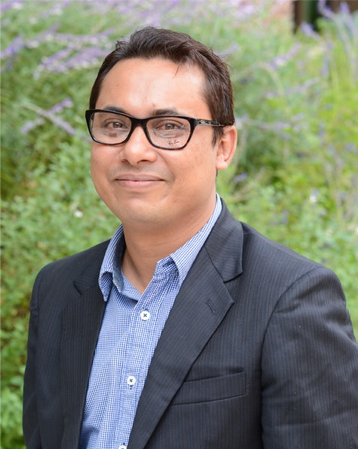Take-aways: Civic Space in Humanitarian Action
On November 29th 2018, DanChurch Aid and Global Focus hosted a brown bag lunch with focus on civic space in humanitarian action. The event was moderated by Nishanie Jayamaha, who is the Programme Learning Director at International Council of Voluntary Agencies (ICVA).
Kate Moger, Regional Director at Great Lakes at The International Rescue Committee (IRC) and Aung Kyaw Moe, director at Center for Social lntegrity (CSI), participated via skype and they gave their perspectives on the state of civic space in humanitarian action in the African Great Lakes region and Myanmar respectively.
ICVAs work
 ICVAs primary aim is to help NGOs understand, engage and influence the humanitarian sector and beyond. ICVA presented the conclusions from their scoping study based on 90 studies and 100 interviews. The objective of the study was to highlight the main challenges for NGOs working with civic space and how ICVA could help these members find durable solutions. The study emphasises the negative development regarding civic space in many countries and how humanitarian work with refugees and migrants has become increasingly difficult. The study underlines several key challenges including the hassle of bureaucracy and administration e.g. getting visa and work permits for international humanitarian workers and legal barriers and corruption in the countries were the humanitarian organisations operate. According to ICVA, international humanitarian organisations lack expertise on how to cooperate with local governments and CSOs and this is where NGOs should focus their effort.
ICVAs primary aim is to help NGOs understand, engage and influence the humanitarian sector and beyond. ICVA presented the conclusions from their scoping study based on 90 studies and 100 interviews. The objective of the study was to highlight the main challenges for NGOs working with civic space and how ICVA could help these members find durable solutions. The study emphasises the negative development regarding civic space in many countries and how humanitarian work with refugees and migrants has become increasingly difficult. The study underlines several key challenges including the hassle of bureaucracy and administration e.g. getting visa and work permits for international humanitarian workers and legal barriers and corruption in the countries were the humanitarian organisations operate. According to ICVA, international humanitarian organisations lack expertise on how to cooperate with local governments and CSOs and this is where NGOs should focus their effort.
The state of civic space
The state of civic space is generally threatened in both Myanmar and in the African Great Lakes.
In Tanzania, Burundi and the Democratic Republic of Congo, which are the three countries where IRS operates, the population frequently experiences crackdowns on civic space. Especially groups that faces double layers of civic space restrictions and violations, such as pregnant women, migrants and refugees, are targeted by the government. At the same time NGOs operating in the mentioned countries find it increasingly difficult to work because of rigid administration e.g. restricting work permits for international workers.
At the same time as NGOs experiences restrictions from the national governments, the international society has decided to draw back the financial aid. This includes both IMF as well as Denmark and other donor countries. According to Kate Moger this decision needs to be reversed: “In countries where the financial aid and/or delegations has been drawn back (e.g. Tanzania), international NGOs needs to re-establish the contact to support the civil society”
The UN has categorized the situation in Myanmar as a ”textbook example of ethic cleansing”. The police have violently cracked down on demonstrations and the government has drawn back the many NGOs authorisation. Myanmar neighbour county Bangladesh has experienced a massive pressure on its borders following the crisis in Myanmar. The existing refugee camps are challenged by the large number of refugees and the local NGOs is finding it difficult to coordinate the refugee camps. At the same time, the international NGOs are denied get access to the refugee camps. Aung Kyaw Moe recommends, that the international NGOs starts to cooperate with the local organisations to find solution towards the coordination problem.
The need to cooperate
 There is an enormous potential for further cooperation between NGOs, e.g. through exchange of information and experiences. In negotiations with the government both local and international NGOs could benefit from collective bargaining.
There is an enormous potential for further cooperation between NGOs, e.g. through exchange of information and experiences. In negotiations with the government both local and international NGOs could benefit from collective bargaining.
The problem that exists now, is that the different NGOs are in competition with each other, due to the fact that they are subsidised through the same national funding models. This has a negative spill-over effect, which means that international NGOs are hesitant towards cooperating and forming partnerships with other NGOs. Kate Moger: “NGOs need to be better at cooperation and sharing knowledge with each other – despite the fact that NGOs have different work methods and are in competition with each other.”
Important stakeholders
 In the last decade or so the global power has shifted and the NGO sector has not managed to keep track of this. Important state actors such as the US, China and Russia have all pushed the balance of power – and this has changed the relations in e.g. Africa. Here, many countries are leaning towards China and away from the US when it comes to bilateral agreements.
In the last decade or so the global power has shifted and the NGO sector has not managed to keep track of this. Important state actors such as the US, China and Russia have all pushed the balance of power – and this has changed the relations in e.g. Africa. Here, many countries are leaning towards China and away from the US when it comes to bilateral agreements.
In Myanmar the situation is a bit different. Religious leaders play an important role mobilising the populations opinion towards the international NGOs. The government has used this to legitimize tighten the legislation towards NGOs.
Common for both regions is the fact that the international NGOs needs to be aware of the local situation and go to greater length to support and cooperate with the local CSOs and NGOs.
“International NGOs needs to be more present in the agenda. Large organisations have access to larger resource that smaller, local organisations do not. NGOs must localise as much as possible, but at the same time they must extend their capacity.”
- Oprettet den .

